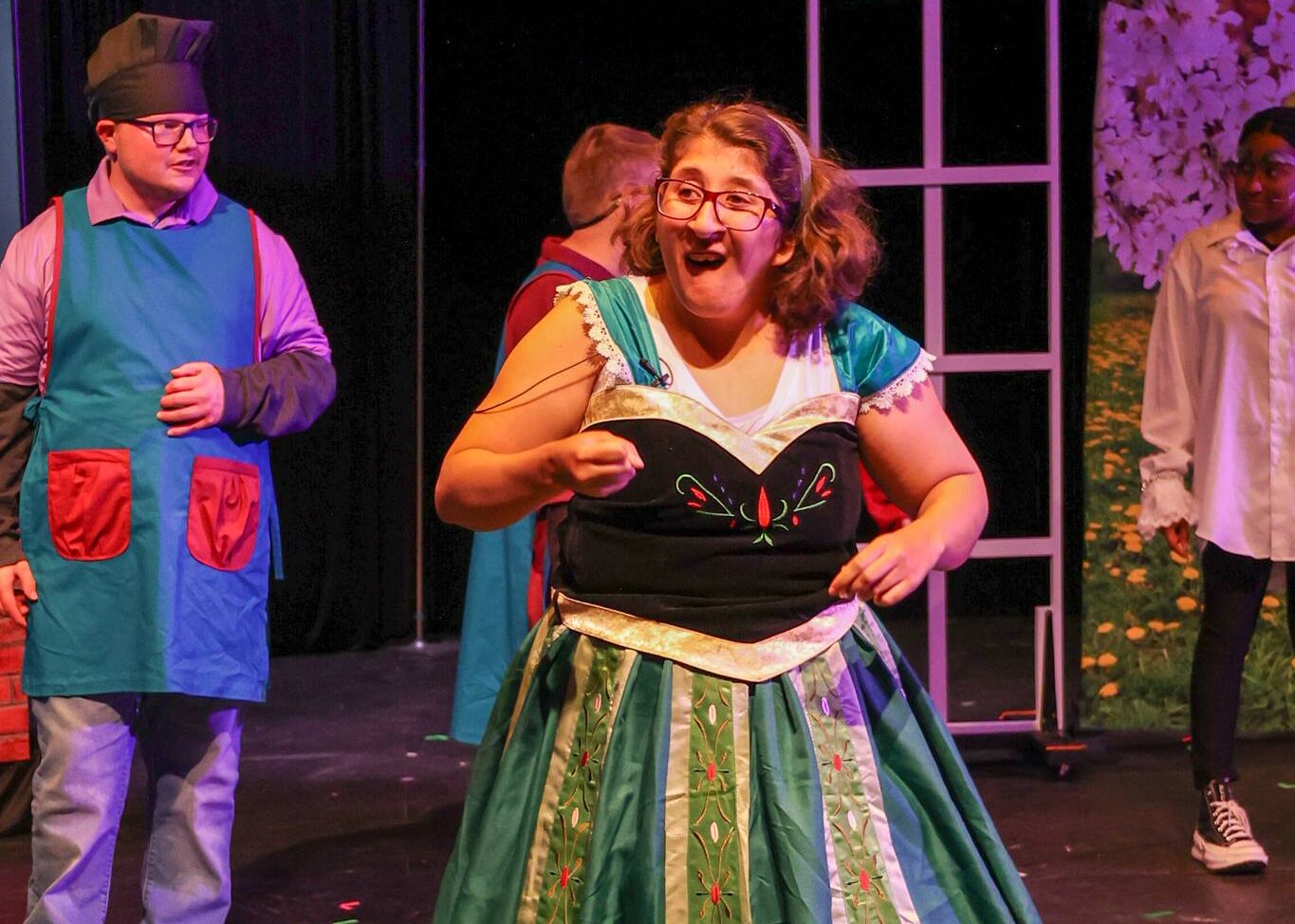Mighty sword and not-so-mighty rubber chicken in tow, Jenny Graham prepares for her upcoming show: The Three Musketeers & The Very Pretty Diamonds.
She’s playing a servant to the queen herself—full of eye rolls and comical disgruntlement, not unlike her real-life persona.
“I’m a sassafras,” the actress says playfully.
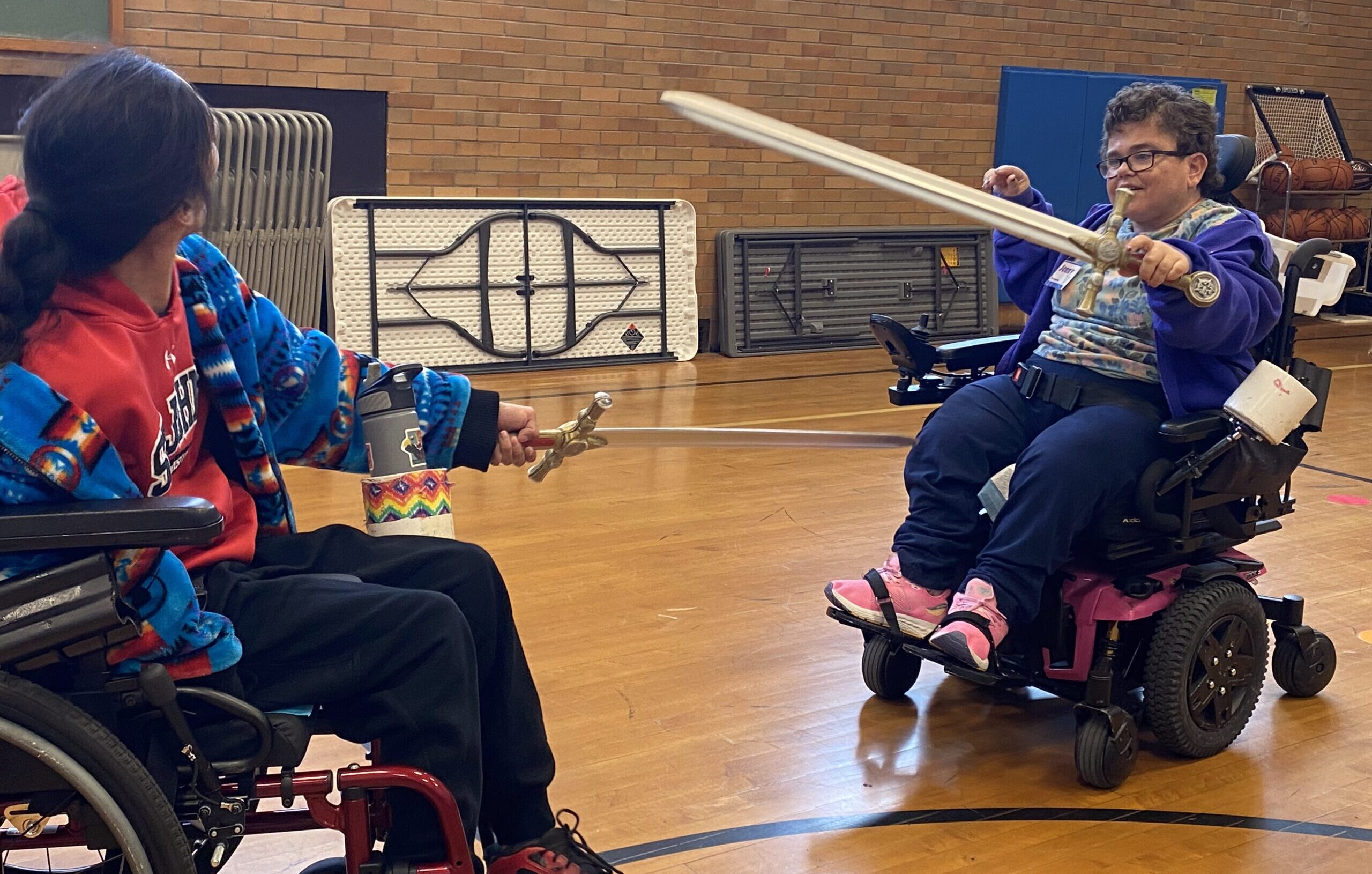
Graham is part of Expanding Stage. It’s a partnership between theatre company Black Hills Playhouse and a program for people with disabilities, DakotAbilities. It all started in 2013 as a residency program trial. It stuck, and it’s now one of just a couple companies in the state with similar offerings.
“I love doing [theatre]. I’ve been doing it for the last eight years, and I wouldn’t change it for anything,” Graham says.
Magical and Adaptable
Debra Kern Workman is the education artistic director at Black Hills Playhouse (which is home to a range of objectively outstanding programs) in South Dakota. She coordinates with teaching artists to educate actors in theatre concepts, who put on shows several times a year across the state.
“What does it look like to support professional artists for who they are?” Kern Workman asks. “It is magical.”
DakotAbilities actors—typically a dozen or so per show—rehearse twice a week. The stage is entirely adaptable: Need help holding something? Let’s tie it to your wheelchair.
Want to communicate in other ways? Insert picture boards or voice actors to help you shine. Maybe a costume’s fabric texture isn’t it (who wants scratchy, irritating zippers anyway?) so actors can modify those choices.
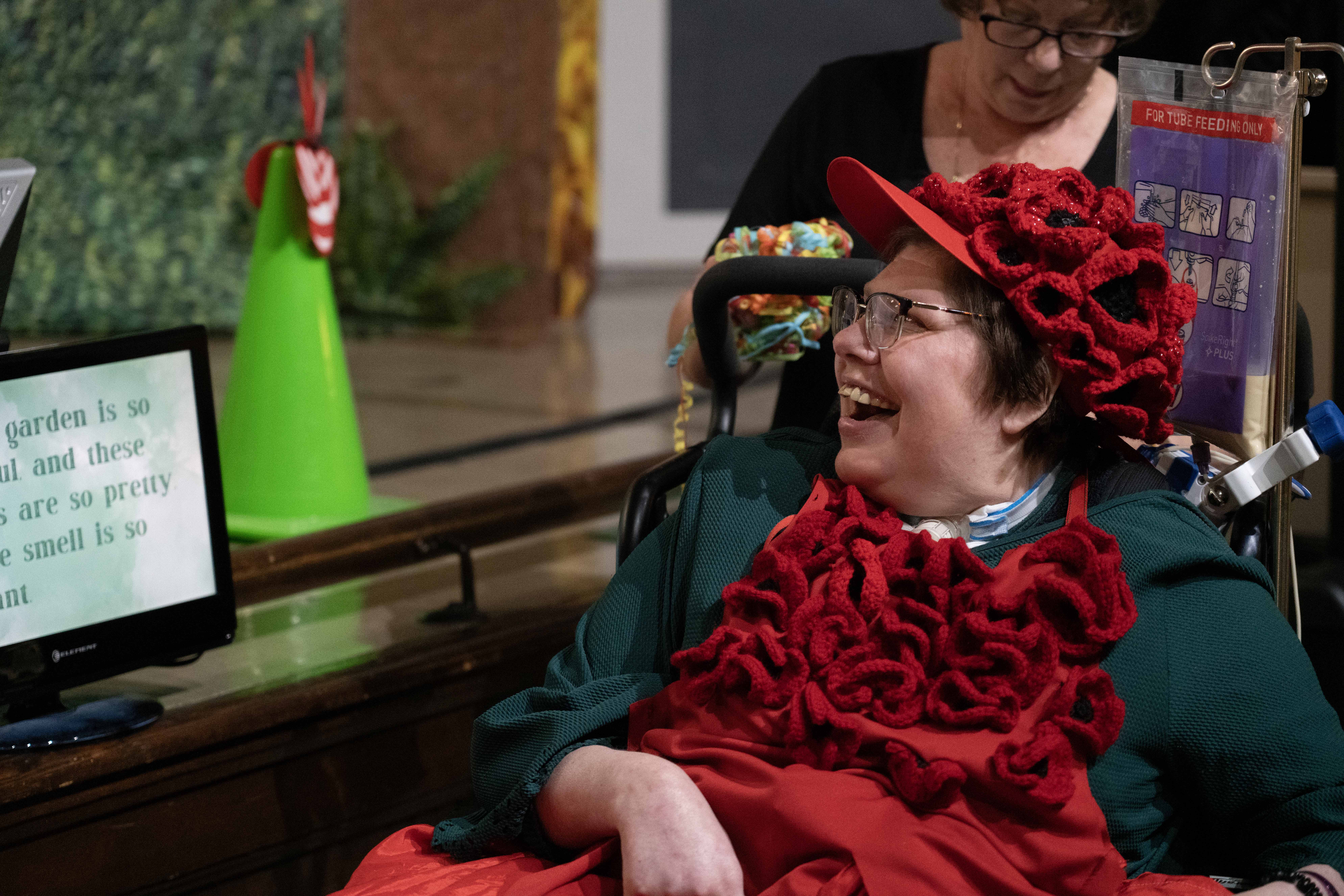
“What’s really cool is the fact that the Black Hills Playhouse is able to adapt to the people that we serve,” says Kelly Breen, a direct support professional at DakotAbilities.
“We have a lot of individuals with a lot of different needs … body movements, body types, and we’re just able to make it happen,” she says.
Graham, who admits she sometimes gets nervous on stage or forgets her lines, says having a stage partner helps her do what she does best: Perform.
An Open Stage
“I think the most cool thing is when we perform … and the audience seeing us perform,” she says.
Graham will direct her electric wheelchair across the stage, lyrically driving it during sword fights or other scenes. She hopes people will leave her shows with more compassion.
“I wish that people would understand the disabilities of different people more, that it’s not scary,” Graham says.
And after eight years of Expanding Stage and dozens of performances, that’s happening.
“When people work with us on these shows, I’m like, you will never see theater in the same way,” Kern Workman says. “[This] program has informed us on what it means to be inclusive, and what it means to support people no matter what theatre you’re doing.”
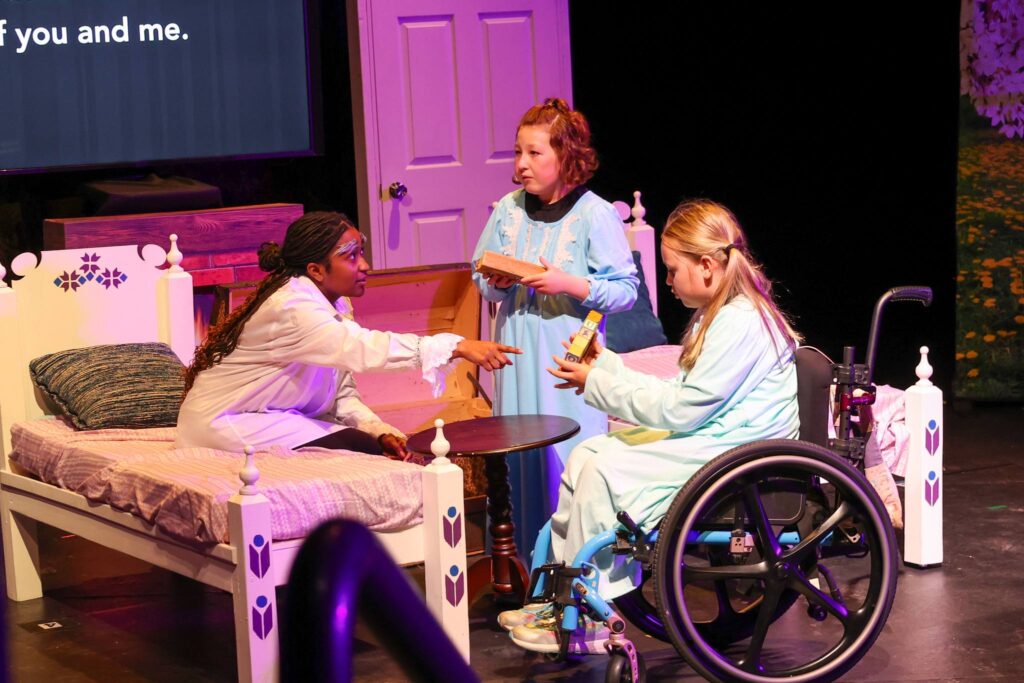
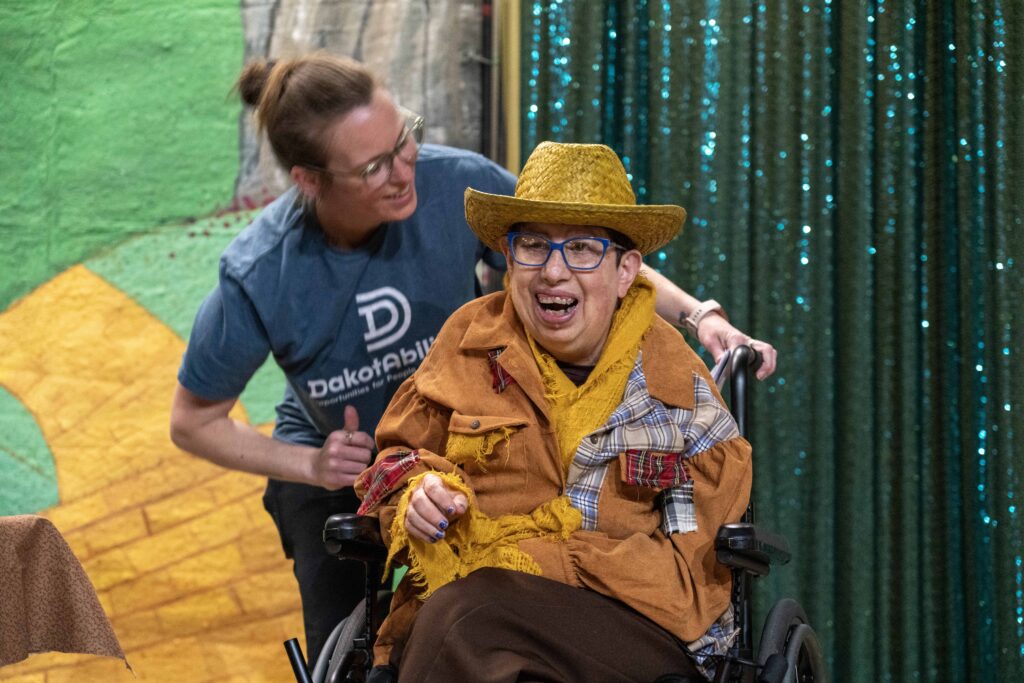
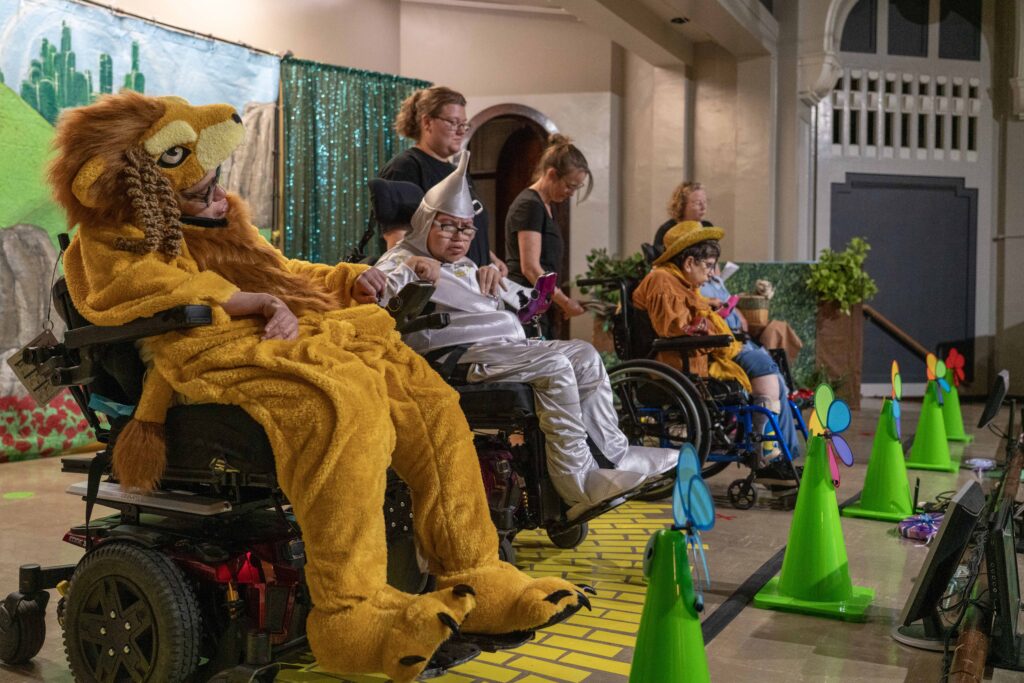
DakotAbilities has doubled performances due to popularity; folks will fly in from across the country to catch a show.
Kern Workman recalls a mother seeing her son, who uses a wheelchair, dance for the first time during a performance. She was in awe.
“Yes, he can dance,” Kern Workman says.
“And it was beautiful.”
